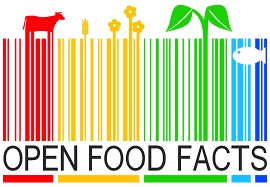Launched on May 19, 2012 with 700 products, Open Food Factsthe collaborative, free and open database on food products from around the world now has more than 600,000 products, thanks to 16,000 contributors worldwide (including 5,590 in France) who use their smartphones to scan product barcodes, take photos of ingredient lists and nutritional tables, and add them to the database.
This product database is directly accessible through the Open Food Facts website and mobile applications and is freely reused by more than 30 other products, applications and services.
These data, which concern food and nutrition but also health and the environment (origin of ingredients, manufacturing sites, palm oil, etc.) are reused for scientific studies (in particular by Professor Hercberg's team for the simplified Nutri-Score labeling system).
The Nutriscore nutrition labeling system was adopted in France by ministerial order on October 31, 2017, for optional use. Using a color scale (from green to red) and letters ranging from A to E, it offers a simple way for consumers to compare and choose food products based on their fat, sugar and salt content.
Santé publique France and Open Food Facts announced a partnership at the end of 2018 to further develop the Open Food Facts database and integrate data submitted by manufacturers and, ultimately, to offer a service that facilitates the calculation of the Nutri-Score for consumers and manufacturers.
The Open Food Facts team launched a new version of the application last June to "decipher labels even better".
160,000 participants in the NutriNet-Health study to advance nutrition research
Since 2009, more than 160,000 people (Nutrinauts) have registered to participate in the study NutriNet-HealthNutriNet-Health aims to better understand what determines the way we eat, and to identify the influence of what we eat on our health.On a regular basis, these 160,000 participants fill out questionnaires about what they eat and their health status. The data collected in this way makes it possible to study the long-term impact of diet on health and to identify risk or protective factors. This step is essential to orient public health policies, as there is currently little certainty about the long-term impact of certain ingredients, food additives, or pesticides on health. The Nutritional Epidemiology Research Team (NERT) that leads NutriNet-Health has published more than 160 research papers. Nutrinet is funded exclusively and entirely by public institutions: the Ministry of Social Affairs and Health, Santé Publique France, the University of Paris 13, Inserm, INRA, Cnam and the Centre de Recherche en Epidémiologie et Statistiques Sorbonne Paris Cité. The NutriNet-Santé study also benefits from additional financial support from the Nutrinautes and Suvimaxiens association.
Références :





